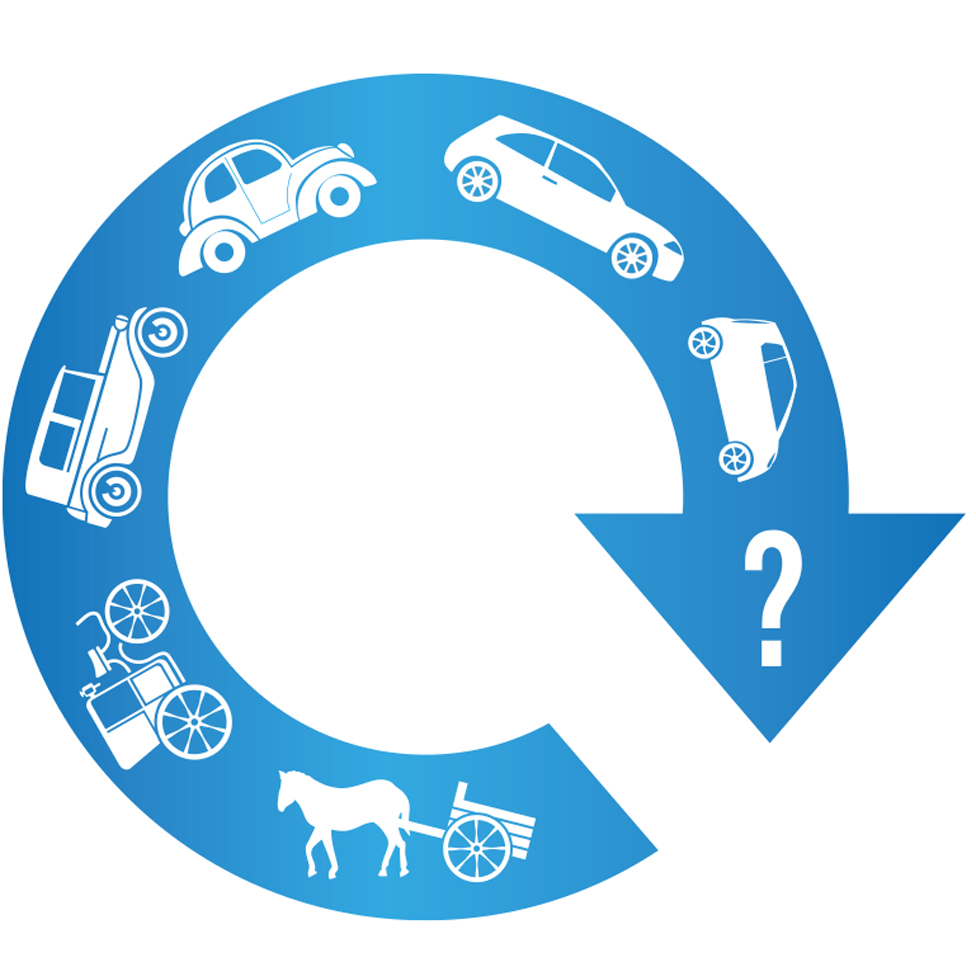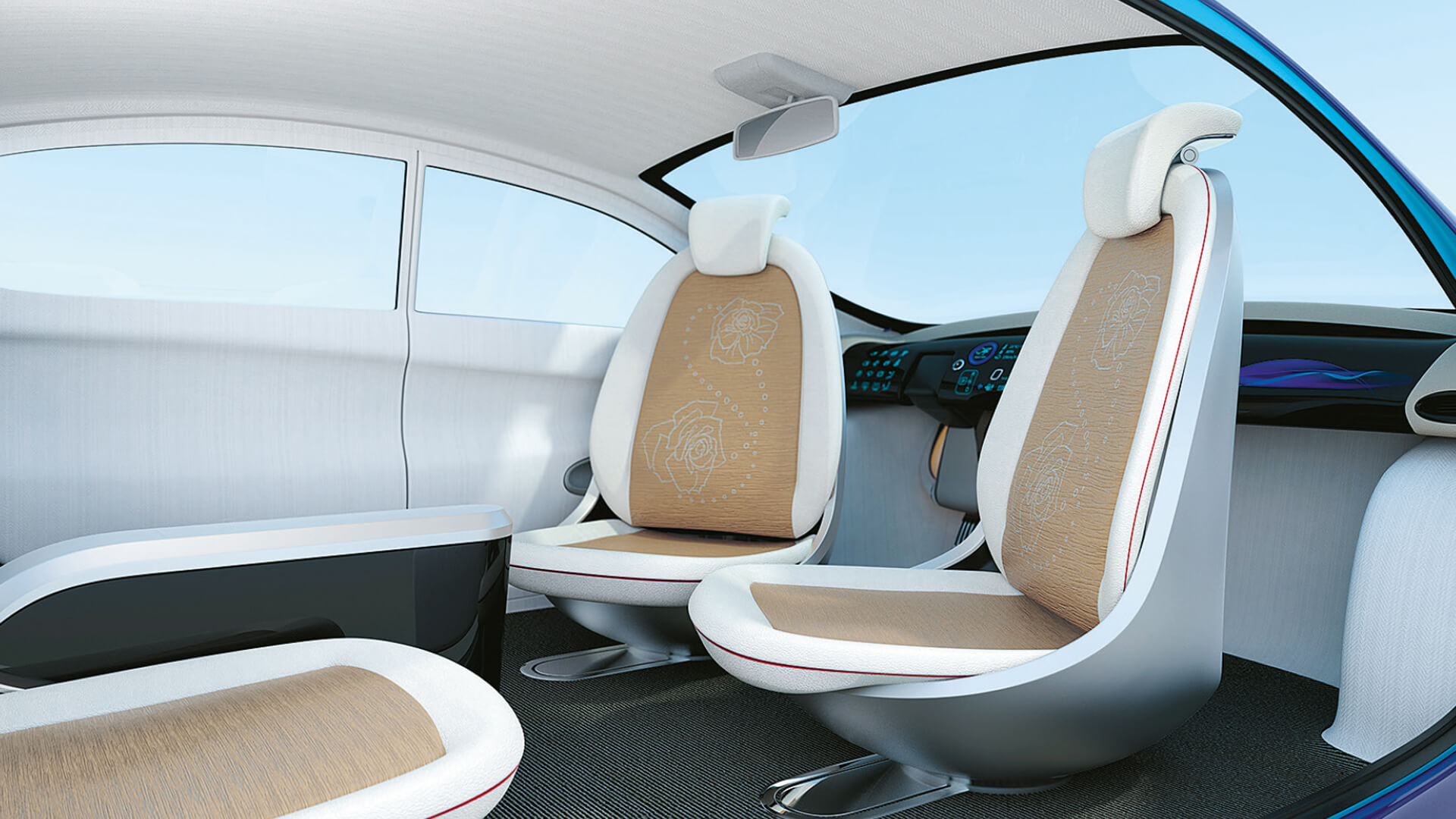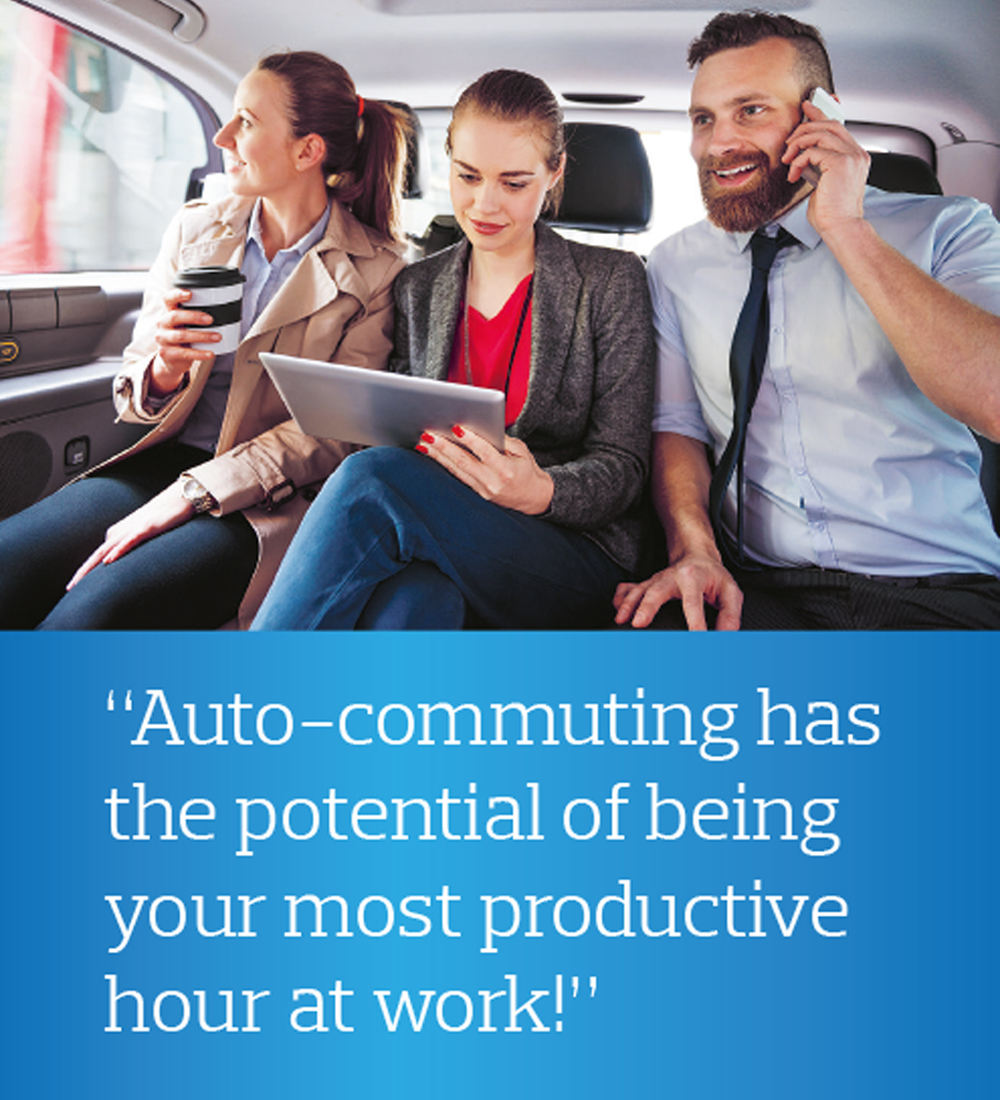
Reality is getting hacked
Cars have set the rules for city planning and our lives for ages. Some of us dream about that good-looking, easy-roaming luxurious ride, others just dread costs and traffic jams. Is this all about to change? The arrival of autonomous cars might be the start of a revolution. A carvolution.
On a lovely holiday afternoon, we were riding our Toyota to the summerhouse, two kids in the back two parents up front, when we stopped in traffic behind a Tesla Model X. Still a rare sight in Stockholm, Sweden, 2016, my wife blurted out: “Kids, look that’s an electric car!” “What’s electric?” the five-year old asked, temporarily looking up from her screen. The three-year old would not be bothered with something as irrelevant as a car, no matter the propulsion technology.
Mother again, happy to get the attention and opportunity to inject some real-world knowledge into the Youtube universe: “You charge its batteries to drive, just like your phone! You know, all cars will be electric in the future. No more gas.” “How long does it take to charge?” The five-year old again, cutting straight to the important stuff.
At this point I heard myself starting to speak Engineering, along the lines of how it depends on the power of the charger but maybe the battery pack can be exchanged like a cartridge and so forth. Before I could end the dad lecture coherently I was already starting to regret that I had undoubtedly exhausted my daughter’s attention span. But to my delight she asked dreamingly: “Hmmm, I wonder what kind of car I will buy when I grow up?”
“You won’t even have to drive yourself! It will be like a kind little robot, driving you around by itself! Isn’t that neat?” It was me again, overly excited and by now totally geeked out: “And maybe you won’t actually have to buy a car yourself? You will share it with others and just open up an app, tell it where you want to go, and a car will come pick you up. And isn’t that really cool that…” “Nooooo!” Ester’s anguished wailing from the backseat interrupted and surprised me. “I WANT to have my OWN car! I want to put my toys everywhere in it, and it’s going to charge my ipad, and play music, and maybe if the car is nice to me I will let it drive by itself. But I like to drive so it will only be sometimes.”
Too baffled to respond immediately I realized that Ester had just soundly punctured my utilitarian techno-dream with the clairvoyant backseat wisdom of a pre-schooler.
LONGING FOR A HORSE
In the early 1900’s one of my young grandfather’s most precious possessions was the family horse. Going from pure manpower to horsepower meant a revolution in efficiency and hence wealth for a family of farmers. The horse was also a primary mode of transportation, which meant that going to church and going to school was also feasible in the winter time on the one-horse sleigh. As grandpa grew up farming was of course gradually mechanized and cars replaced horses on the road. Grandfather was most probably the last generation of children longing for a horse – for practical reasons.
For my father’s generation, and myself, getting a car was very important. Looking back at my childhood 1970s and ’80s it seems as if everything happened in the car: family vacation, going to soccer games, the daily commute to work and school, and later on riding to parties with friends, drinking beer in the back seat and perhaps other things… such as singing Sweet Child O´Mine. Of course I wanted a car! I also remember spending silly amounts of time learning to drive. Three times I failed my driving test and boy was I proud when I passed. Still, I am most probably the last generation of children yearning for a car – for practical reasons.
I will be surprised if Ester ever has a car. Will she even learn how to drive? Will car brands be part of her life, like Chevrolet, Toyota and Volvo have been part of mine? Will she ever hunt endlessly for a parking space, run out of gas in the middle of nowhere, or be the night’s designated driver?
According to the WHO some 1.25 million people die annualy in car accidents, one every 25 seconds, many of which are caused by drivers under the influence. Despite knowing the immediate risks well, the lure of alcohol and the induced feeling of self control are so strong that ordinarily sane people keep committing acts of lethal insanity in staggering numbers. Autonomous cars will turn this situation on its head to the benefit of drivers, pedestrians and the alcohol industry. Instead of driving to where you want to have a drink, and stepping out, people will get into the car to have a drink. After work with friends – brought to you by the Absolut Bar Car.
NO NEED TO REST
Another key root cause for automotive accidents is exhaustion. Fatigued drivers make poor decisions, have lapses of attention at crucial moments or just flat out fall asleep behind the wheel. Driving a critical delivery through the night? No problem. Inexhaustible robo-drivers will bring profound change to the trucking and transportation industries. Lorries and articulated vehicles will haul at off-peak hours decreasing traffic, no longer restricted by truckers that need to rest.
But what about human judgment, certainly it cannot be replaced by an automaton? The first versions of autonomous vehicle software will be riddled with bugs, and some of them will cause lethal accidents. But compared to the human software ‘bugs’ of intoxication and weariness the autonomous driver will, on average, be an excellent chauffeur. Of course, there are complex issues of responsibility that will need to be handled differently. If a human driver disobeys traffic rules, thereby causing an accident, the punishment is normally quite lenient. As a society we have factored in the immense benefits of automotive transportation, and the fallible nature of humankind is known and accepted. Consider the same scenario with an autonomous vehicle incapacitating or even slaying a pedestrian, perhaps due to a software bug or a faulty sensor, perhaps due to the careless pedestrian. Can and should we be as understanding? Who is responsible, the owner or manufacturer? Can and should someone be sued for damages?
The technical challenge in creating an autonomous chauffeur that will not go D-Fens has until quite recently been unsurmountable. The standard paradigm of computing, amassing logical statements such as “IF child THEN brake” or “WHEN green light THEN accelerate”, would never have compounded into a self driving vehicle. But with the recent advancements in deep machine learning computers are now perfecting their driving skills on their own, learning with the patient guidance of human driving instructors.
HOW MUCH DATA IS NEEDED
But how will we know when a particular machine is ready to drive? Will they fail their driving tests a couple of times, like I did, and then finally pass and take off in a cloud of dust into traffic? As humans are tested by humans, learning computers are tested with data. How much data? Tesla CEO Elon Musk estimates around 250,000 laps around the world of driving data needs to be collected before regulatory approval. That is one epic driving test! As that data accumulates and transforms into safe driving skill it is my bet that humans will no longer be allowed to drive.
An entirely new category of accidents will emerge. A recent and heartbreaking example was a fatal car accident with a DVD player showing Harry Potter found in the wreck according to some eyeball witnesses. A tragedy, but nothing too strange one would think. Unless… the driver was alone in the wreck and the vehicle was a Tesla Model S commuting on autopilot.
A large share of car usage is related to the tedious, daily commute to work. And funnily enough most people decide to go roughly at the same time of day in the same direction. Today commuting is for most people an inefficient waste of life, but imagine instead going to work in a purpose made autonomous vehicle. Auto-commuting has the potential to be your most productive hour at work! Comfortable, connected, driven by an invisible driver.
In addition, autonomous vehicles will be able to reduce traffic through more efficient usage of road real estate. Owing to split second reactions and machine to machine communication with the vehicles nearby, cars could achieve simultaneous and synchronized starting at red lights, driving within inches of the car in front and seamlessly optimizing routes based on the current traffic situation. No more Falling Down when you are riding in the Mercedes F105 or the Volvo Concept 26.
Not only are today’s cars creeping forward for hours in slow traffic, they are actually standing still most of the time. A whopping 95 percent of the time. In stark contrast, self-driving cars will likely be driving most of the time, immediately picking up the next passenger after drop-off. As our car-defined cities have grown, parking inevitably became a nightmarish issue – for drivers, commuters and city planners. Despite the perennial lack of parking space, cities overall consist of 15-20 percent parking space. What will happen to all that prime real estate when no one needs parking? Green revolution or property crisis? And what about all those suburban garages? At first all that unused space will quite naturally fuel a startup boom, but over time garages will no longer be built. Why should they?
PEOPLE WILL COMMUTE LONGER
And what will happen to the car industry with all that efficiency being squeezed out of every shared vehicle? Sales will plummet and the industry must certainly be doomed! I would not short the market just yet. When the cost of car transportation will go down dramatically, demand will go dramatically up – economics 101. For example, more efficient and productive commuting will increase demand and acceptance for commutes, and hence people will commute longer.
As a car industry executive I would be less worried about volumes and more worried about the threatening irrelevance of car brands. The what?! Think about it, what will be your main transportation brand in the future? Probably Uber or one of its competitors. As vehicles zip around autonomously, and transportation becomes a service on demand, the brand of the hardware manufacturer will ultimately be less important.
Much like consumers of data could not care less whether their TCP/IP packets are transported by core routers from Cisco, Juniper or Huawei. Yes, there will be niches, and autonomous cars could still be symbols of status, but my guess is that the mass market will change profoundly. The game of musical partnerships chairs is already in full swing, with Volvo partnering with Uber, who also has Toyota as an investor. Lyft and General Motors are already in bed together. What is the future for car insurance brands? Car financing? Corner shop mechanics?
All in all, these changes make me a little sad. Or perhaps nostalgic. In 1994 I firmly believed a car equaled freedom, and I truly yearned for a car. It will seem pretty absurd in a decade or two with all the tire changes, car washes, parking hunting sessions, hours in slow moving traffic, and visits to the mechanic. My kids will think that owning a car is tantamount to a job. Who needs an extra job?! Chances are that owning a car will be their ultimate luxury.
Cars have enormous societal impact – for good and for bad. A revolution in cars will undoubtedly be a revolution in society. A carvolution. Chinese search engine Baidu, Volvo, Google, Nissan and Mercedes-Benz have all promised autonomous vehicles generally available by 2020. On August 16 2016 The Ford Motor Company announced that by 2021 it will offer autonomous vehicles on demand – one century after the production of the iconic model T surpassed 1 million units per year.


